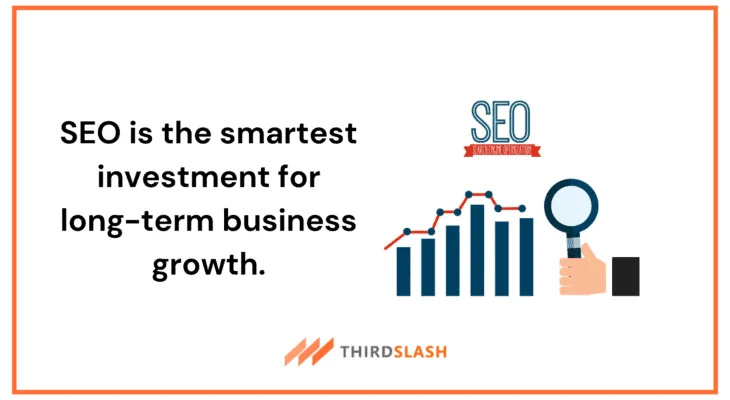Single Blog

SEO Return on Investment: Why It’s Your Business’s Best Marketing Strategy
- admin
- February 20, 2025
- 0 Comments
Search Engine Optimization (SEO) is all about optimizing your website so it can rank higher in search engine results, increasing your visibility and bringing in more organic traffic. This method is often seen as one of the most cost-effective ways to market a business, but the big question is: How do you know if it’s worth your investment?
That’s where SEO Return on Investment (ROI) comes in. SEO ROI is a measurement that helps you assess how much value you’re getting from your SEO efforts. By tracking this, you can determine whether the money, time, and resources spent on SEO are bringing in the results you expect.
What is SEO ROI?
SEO ROI is a way to measure the effectiveness of your SEO strategy. It looks at the return (such as traffic, leads, or sales) compared to the investment (such as time, money, or resources) you’ve made to improve your site’s visibility. If your SEO efforts are bringing more traffic, better rankings, and higher conversions than what you spent, then the ROI is positive.
Here’s how to calculate it:
- Identify the Costs: Your expenses may include paying an SEO agency, purchasing SEO tools, developing content, and associated costs.
- Measure the Return: Track whether your SEO work helps boost website visits from search results as well as sales numbers and customer conversion rates.
- Calculate ROI: The standard method to measure ROI includes:

Why is SEO ROI Important?
Knowing your SEO ROI is crucial for several reasons:
- Track Effectiveness: SEO takes time to show results, and knowing your ROI helps you understand whether your strategy is on track or needs adjustments.
- Prioritize Resources: SEO efforts can be costly and time-consuming. Measuring ROI ensures that resources (whether it’s budget or manpower) are being used where they have the biggest impact.
- Long-Term Growth: Unlike paid advertising, which stops as soon as you stop paying, SEO provides long-term benefits. The better your SEO, the more organic traffic you can attract, without constant ad spend.
- Informed Decision Making: By knowing which SEO tactics are delivering the best results, you can refine your strategy and focus on what works.
What Are the Key Factors Affecting SEO ROI?
Several factors influence the success of your SEO return on investment (ROI). By focusing on these elements, you can maximize your SEO efforts:
- Keyword Selection: Target high-intent, low-competition keywords to attract the right audience.
- Content Quality: Publish engaging, relevant, and well-optimized content that meets user intent.
- Website Performance: Ensure fast loading speeds, mobile responsiveness, and smooth navigation.
- Backlink Quality: Build authoritative, relevant backlinks to improve domain authority and rankings.
- User Experience (UX): Provide an excellent on-site experience with clear CTAs and easy accessibility.
- Analytics and Tracking: Use tools to monitor SEO performance and refine strategies for better results.
Focusing on these factors helps improve your website’s visibility, traffic, and conversions, ultimately boosting your SEO ROI.
How to Improve Your SEO ROI
- Set Clear Goals: Define specific objectives, such as increasing organic traffic by 30% in six months or generating 50 new leads per month. Clear goals help you focus your efforts.
- Optimize On-Page SEO: Improve meta tags, headings, and content structure. Use relevant keywords naturally and create content that answers user questions.
- Leverage Local SEO: If you run a local business, optimize for location-specific searches by claiming your Google My Business listing and gathering local reviews.
- Focus on High-Impact Pages: Identify the pages that drive the most traffic or conversions and optimize them further to maximize their performance.
- A/B Test Changes: Experiment with different strategies, such as headline variations or CTA placements, to see what resonates best with your audience.
- Keep Up with Trends: SEO is constantly evolving. Stay informed about algorithm updates and emerging trends to maintain your competitive edge.
Conclusion
Using SEO to market your business offers significant results but requires monitoring your investment to confirm its effectiveness. Knowing how well your SEO strategies produce results lets you use resources wisely and invest in tactics that work best. Regularly track and improve your SEO work brings lasting rewards to your business.
